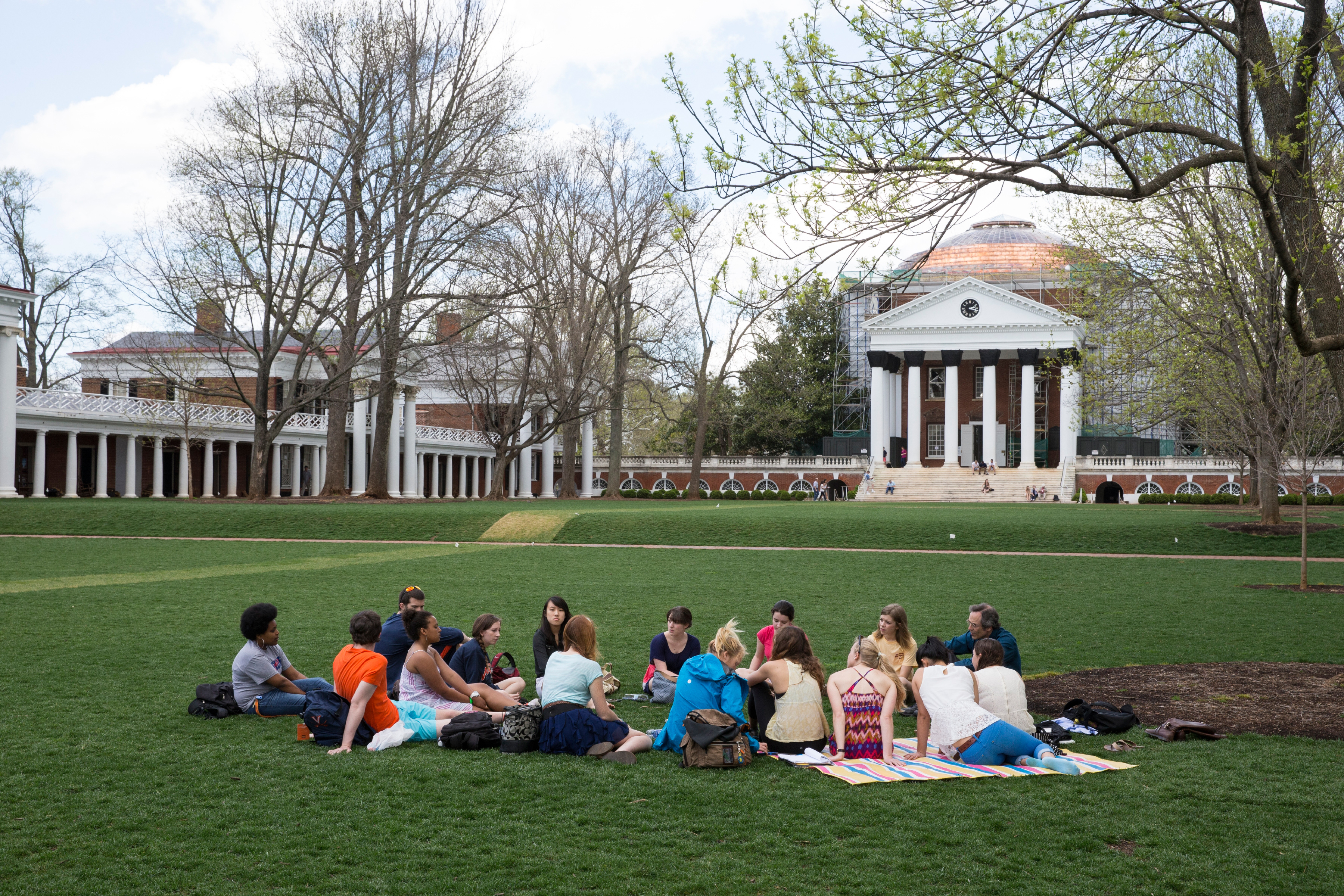The University of Virginia Board of Visitors will meet April 23 to set undergraduate tuition rates for the 2014-15 academic year.
The meeting will be held at the Southwest Virginia Higher Education Center in Abingdon, a day after board members attend the inauguration of Donna Price Henry as the eighth chancellor of University of Virginia’s College at Wise.
The University administration will propose a 4.5 percent increase in tuition and mandatory fees for in-state undergraduate students, and a 6 percent increase for out-of-state students. The overall average increase would be 5.4 percent.
“The University of Virginia remains committed to providing affordable access to one of the nation’s premier public research institutions,” University President Teresa A. Sullivan said.
The proposal would support ongoing efforts to improve faculty and staff compensation, drive initiatives of the University’s strategic plan and cover increases in U.Va.’s contribution to the Virginia Retirement System.
“This recommendation first and foremost enhances the quality of the student educational experience at U.Va.,” Executive Vice President and Chief Operating Officer Patrick Hogan said. “The strategic investments that are proposed would advance initiatives that benefit current and future generations of students.”
If approved by the Board of Visitors, the proposal would increase the total cost of attendance for a first-year Virginia resident by $949 to $27,417, which includes tuition and fees, room and board, and estimated expenses for books and travel expenditures.
U.Va. is widely recognized as one of the top public universities and one of the best values in all of higher education. Kiplinger magazine ranks the University No. 2 among “Best Values in Public Colleges,” while Princeton Review ranks U.Va. the third-best value among public universities. U.S. News & World Report ranks U.Va. the No. 2 public university overall.
Recognizing the importance of robust financial aid in measures of quality and value, the tuition proposal does not affect the University’s longstanding commitment to meet 100 percent of demonstrated financial need and to operate admission on a need-blind basis. Among public universities, this distinction is shared only by U.Va. and the University of North Carolina at Chapel Hill.
“The University gives no consideration to the financial circumstances of a student when considering an offer of admission,” Sullivan said. “This is a place where any student who qualifies academically has an opportunity to succeed.”
Under the proposal, 2 percentage points of the increase are earmarked for faculty and staff compensation, 2 percentage points will go toward funding the priorities of the University’s strategic plan, and 1.4 percentage points will cover the state-mandated statutory increase in the employer’s contribution to the Virginia Retirement System.
The Board of Visitors approved a resolution in February 2013 to elevate the average faculty salary into the top 20 of U.Va.’s Association of American University peers. The University, like many others in higher education, faces a major generational transition among faculty in the coming years.
“The educational experience here is directly linked to the quality of faculty,” Sullivan said. “U.Va. is engaged in an intense competition to retain our best faculty members and to attract new leaders for the classroom and research efforts.”
University staff and faculty last summer received merit-based increases. For faculty, the increases were the first regular salary increases in about five years, due to ongoing budget constraints at the state level.
Revenue generated from the tuition proposal would directly support several key initiatives of the Cornerstone Plan, the University’s new five-year strategic plan. The Cornerstone Plan identifies five “pillars” for sustaining and enhancing University excellence.
One strategic initiative is “Total Advising,” a comprehensive approach that combines high-quality academic advising, career advising and coaching, and building an online portfolio. Total advising also fosters relationships between current students and U.Va. alumni. The proposal would also support improvements in institution-wide infrastructure and services that support the ability to conduct research, scholarship, creative arts and innovation.
As it prepared the tuition proposal, the University’s administration initially projected that U.Va.’s operating expenses would increase by about $19 million in the next fiscal year, a figure that would have required a much larger tuition increase to fully fund.
However, efforts to generate savings through more efficient operations, including wellness programs, procurement and process efficiencies, and reallocation of existing resources added up to almost $11.5 million in operational savings, which afford U.Va. a greater ability to hold down necessary increases.
“Our goal is to present a proposal that shows responsible stewardship of resources, while supporting ambitious efforts to improve what already is one of the country’s best universities,” Hogan said.
Media Contact
Article Information
April 17, 2014
/content/university-virginia-board-set-tuition-2014-15

